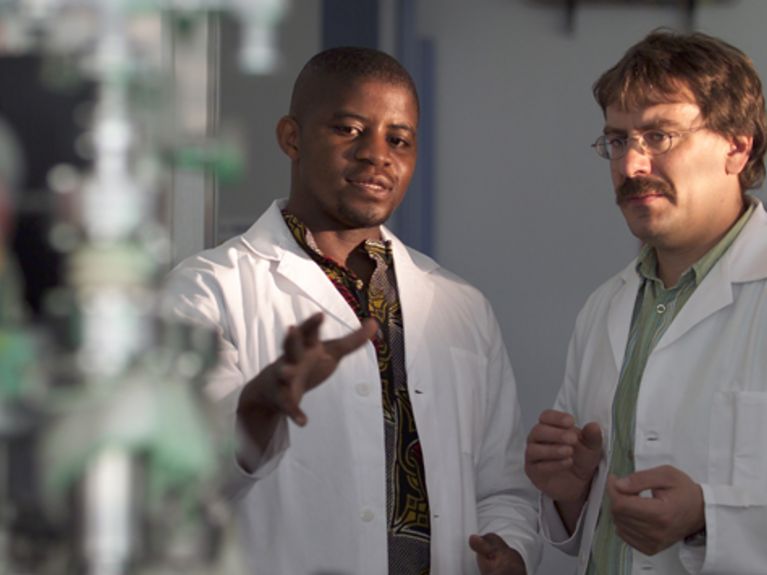Scientific Careers
Good reasons for Germany

It is still considered an advantage – and in some cases even an absolute prerequisite – for researchers to launch their career in the United States and work hard there to develop an excellent reputation
However, the talent factory of the US is now facing competition: Germany. More and more young people from around the globe are making the decision to study, work and live in Germany. Why? What is so attractive about a country whose language is not easy to learn, and that is considered bureaucratic, complicated and overregulated? At this year's meeting of the American Association for the Advancement of Science (AAAS) in Chicago, three young researchers from three different continents will speak at a press event organised by the Helmholtz Association about why they have chosen Germany as their place of work and residence. Xiaoxiang Zhu from China, Daniela Panáková from Slovakia, and Emad Aziz from Egypt met with us beforehand for an interview.
Helmholtz Young Investigators Groups
Helmholtz press breakfast on 15 February in Chicago
The Helmholtz Association is one of the main partners of the AAAS Annual Meeting, which provides a forum for scientists, journalists and communications sector representatives from across the world to come together and share their experiences. The comprehensive programme includes talks, workshops and discussion rounds, and provides an excellent environment for networking.
At this year's meeting, which takes place from 13 to 17 February in Chicago, representatives from the Helmholtz Association will hold a panel discussion with three scientists from China, Slovakia and Egypt in front of an audience of over 100 international journalists on the topic of why more and more young people are choosing to launch their scientific careers in Germany.
The American Association for the Advancement of Science (AAAS) is an international non-profit organisation for the worldwide promotion of science. Alongside its involvement in the fields of education and social development, the AAAS is also an interest group and professional organisation. The AAAS organises events for its members and publishes the journal Science as well as numerous scientific newsletters, books and reports. It also implements programmes worldwide to promote a better understanding of science.
Bild: Helmholtz
Bild: MDC
Bild: HZB
Readers comments